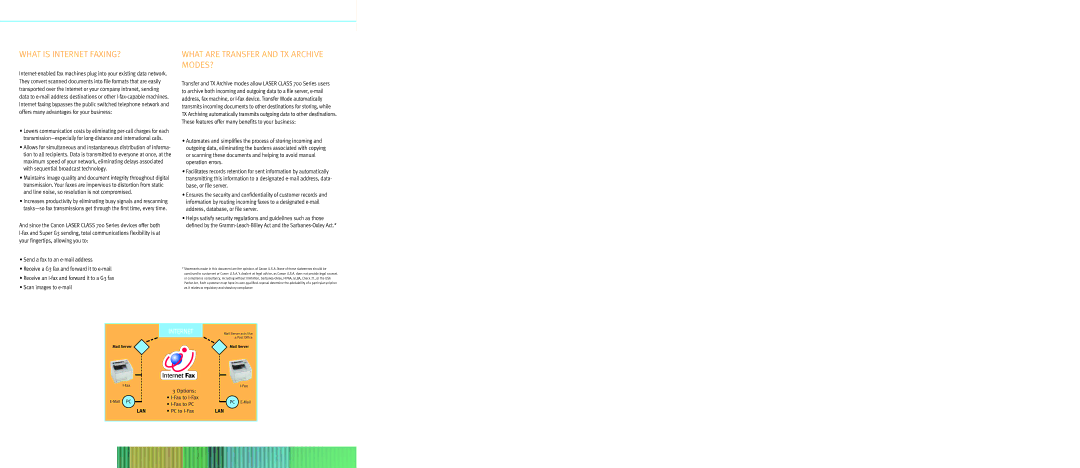
WHAT IS INTERNET FAXING?
•Lowers communication costs by eliminating
•Allows for simultaneous and instantaneous distribution of informa- tion to all recipients. Data is transmitted to everyone at once, at the maximum speed of your network, eliminating delays associated with sequential broadcast technology.
•Maintains image quality and document integrity throughout digital transmission. Your faxes are impervious to distortion from static and line noise, so resolution is not compromised.
•Increases productivity by eliminating busy signals and rescanning
And since the Canon LASER CLASS 700 Series devices offer both
WHAT ARE TRANSFER AND TX ARCHIVE MODES?
Transfer and TX Archive modes allow LASER CLASS 700 Series users to archive both incoming and outgoing data to a file server,
•Automates and simplifies the process of storing incoming and outgoing data, eliminating the burdens associated with copying or scanning these documents and helping to avoid manual operation errors.
•Facilitates records retention for sent information by automatically transmitting this information to a designated
•Ensures the security and confidentiality of customer records and information by routing incoming faxes to a designated
•Helps satisfy security regulations and guidelines such as those defined by the
•Send a fax to an
•Receive a G3 fax and forward it to
•Receive an
•Scan images to
*Statements made in this document are the opinions of Canon U.S.A. None of these statements should be construed to customers or Canon U.S.A.’s dealers as legal advice, as Canon U.S.A. does not provide legal counsel or compliance consultancy, including without limitation,
INTERNET
Mail Server
|
| |
|
| 3 Options: |
| • | |
| • | |
| ||
|
|
LAN | • PC to |
Mail Server acts like a Post Office
Mail Server
PC
LAN
